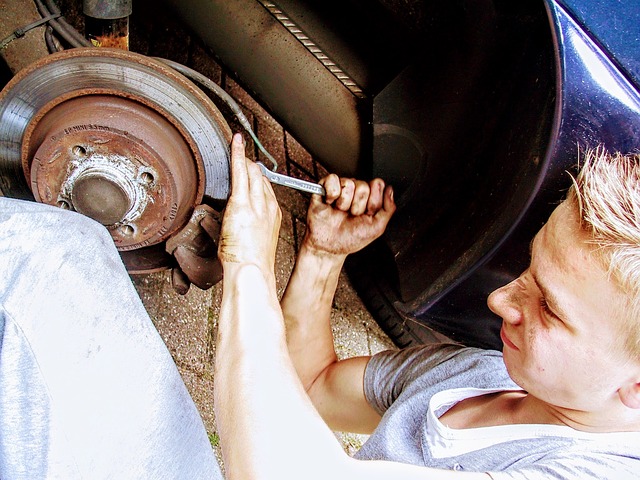Credit Cards
Should You Ever Use a Credit Card for Emergencies?

This is How Credit Cards Will Work in the Future
Not having any cash on you or forgetting to pack a lunch can seem like an emergency when you’re hungry at lunchtime.
Having a credit card can save the day by paying for a small, manageable expense.
A credit card can also come to the rescue in real emergencies, such as paying for a hospital stay, air conditioner repair during the summer, major car repair, or a plane ticket home to visit a sick relative, among other things.
But depending on a credit card to pay for unexpected expenses can be a bad idea for a number of reasons.
Is it really an emergency?

 A shoe sale isn’t an emergency. Neither is a beer run on a Saturday night. You know what an emergency is.
A shoe sale isn’t an emergency. Neither is a beer run on a Saturday night. You know what an emergency is.
But sometimes that can be difficult to see during whatever the situation is. Or it’s subjective and an emergency to one person isn’t one to another. Buying a plane ticket to visit a sick friend may be an emergency to you, while another person may call them or send a card.
If it’s something that affects your basic, immediate needs, then it’s probably an emergency. Food, shelter, your health or getting home while traveling can be emergencies worth charging to a credit card. But even those should get you thinking about alternatives and the implications of using a credit card.
Pay it off within 3 months
If you expect to have the extra income to pay off an emergency charge within three months, then it’s probably OK to use a credit card. One month is best so you can avoid interest charges, but three months is reasonable — provided you can afford the interest.
This is one reason why it’s important to think about how you’ll pay for an emergency long before it happens. If you can’t come up with a way to pay it off within three months, then you could get into financial trouble.
It’s a loan with interest
Not having the money in your bank account to pay for an emergency room visit definitely sounds like an emergency. But remember, using a credit card means you’re taking out a loan that you’ll have to repay — with interest if you can’t pay it all back at once.
If the credit card you’re using is one that you regularly pay off entirely each month, then paying interest for a few months may not be a problem. But if you’re paying interest on other transactions each month, adding more may not fit in your budget.
It could lead to more debt
The interest on the emergency you charge could be just the start of debt you can’t afford. If you can’t afford to repay it soon, it could lead to more credit card charges.
Try to avoid this by resolving not to charge more purchases to your credit card until you’ve paid off the emergency debt.
How to Get Cash From A Credit Card
Also, emergencies obviously don’t happen when you expect them to. Two or three can pile up at one time, not giving you enough time to pay them all off and leaving you with a huge amount of debt.
You’re at a creditor’s mercy
Many credit card companies are happy to give you a higher credit limit when you need it for an emergency.
But if you’re at your credit limit, do you really want to rely on a last-minute call to a creditor to raise your credit limit during an emergency? They may decide not to extend you enough credit for your emergency, especially if you’re already maxed out or have a history of late payments.
If you’ve had a few emergencies happen together, you can easily max out your credit card and not have many options.
Harder to save
Beyond saving for retirement, your kids’ education and any other long-term goals, piling more debt onto a credit card for an emergency can prevent you from putting money into an emergency fund.
This fund can be the best way to cover such costs. It’s cash you’ll have available to use whenever it’s needed. Ideally, it should cover a year’s worth of living expenses in case you lose your job, but starting with one to two months of expenses is a great start.
Emergencies are going to happen to you sooner or later. Planning for them now, when you don’t have one in front of you, can make funding an emergency fund easier.
Start by automatically transferring $50 or so per week to the fund, and set a small goal of $1,000 to get you motivated.
Pick the right card
It can help to have one credit card dedicated to being used mostly in emergencies. You’ll want to use it once a month to keep it active — such as for a recurring bill such as cable TV — and then leave it untouched until an emergency pops up.
Find a credit card with the lowest interest rate possible, without an annual fee or a low fee, low late fees or over-limit fee, and a good grace period.
Get a card with a high enough credit limit to cover the emergencies you’ll need to cover. Homeowners who commute, for example, will need higher limits than a renter who walks to work.
Once you get a credit card dedicated to emergencies only, keep it deep in your wallet or purse and don’t use it for anything else. If it’s too much of a temptation when shopping, leave it at home or with a trusted relative. Just be sure to carry it with you when you travel, or that you can be billed for the emergency and pay it later.
And when using it for an emergency, you may want to call your creditor to alert them to the big charge coming. If you only use the card for small purchases from time to time to keep it active, they may suspect fraud when a large charge is made, and may flat it as stolen or freeze it. You don’t want a real emergency to lead to another one with your credit card provider.
What To Do If You Lose Your Credit Card
Unmasking Online Deception: An In-Depth Social Catfish Review
Purple Garden Psychics – ($1/Min) FREE Trial Offers, Real Experience & Benefits And More

Refinancing an Auto Loan: How to Know If It’s a Good Idea

Reverse Mortgages Pros and Cons: Ripoff or a Good Idea?

8 Ways it Just Got Easier to Achieve Student Loan Forgiveness
Unmasking Online Deception: An In-Depth Social Catfish Review

Orchard Bank Credit Cards | NOT a Scam!

PrivacyGuard Review

How to choose where to study as an international student


